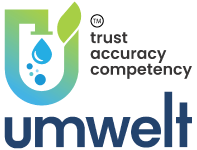Investigating the Ground beneath Our Feet: Umwelt Research Lab's Comprehensive Approach to Soil Testing and Analysis
At Umwelt Research Lab, we understand the importance of soil health and the impact it has on agriculture, construction, and the environment. Our team of experts use state-of-the-art technology and techniques to conduct comprehensive soil testing and analysis to identify and address any potential issues related to soil pollution or contamination.

Key Features
- Comprehensive soil testing and analysis to identify and quantify contaminants, nutrients, elements, pH, and acidity in soil samples.
- Expertise in identifying the cause of soil pollution or contamination, including industrial activity, agricultural chemicals, and improper waste management.
- Accurate and reliable sample collection methods, including grab sampling and composite sampling.
- A wide range of analytical techniques including Water, Mehlich buffer, Mehlich 3 (ICP), Summation, Loss on Ignition, Combustion, Specific Ion Electrode, Electrical Conductivity (1:2), EPA Method 3050B/3051 + 6010, Hydrometer Method, EPA Method 7473, ASTM Method C 25 etc.
- Detailed reporting and recommendations for addressing any issues identified through testing.
- Soil sediment sampling for chemical, physical, toxicological and biological analysis.
- Dredge sampling and Core sampling.
- Training and education for employees and management on soil testing and analysis, and their effects on the environment.
FAQ
Soil testing and analysis is a process in which nutrients, elements, contaminants, pH, and acidity in soil samples are checked in a laboratory for agricultural or construction purposes.
Soil pollution, also known as soil contamination, is the presence of materials in the soil that are harmful to living beings when they exceed certain threshold concentrations. It is caused by industrial activity, agricultural chemicals, fertilizers, and improper waste disposal.
The most common causes of soil pollution are industrial wastes such as harmful gases and chemicals, agricultural pesticides, fertilizers, and insecticides. Improper septic systems, acid rains, fuel leaks, and unhealthy waste management practices can also contribute to soil pollution.
Soil pollution can lead to decreased soil fertility and yield, loss of soil and natural nutrients, soil erosion, foul odors, and toxic dust.
Umwelt Research Lab uses state-of-the-art technology and techniques to conduct comprehensive soil testing and analysis. Our team of experts collect soil samples using grab sampling or composite sampling methods and analyze them in our laboratory using a variety of analytical techniques.
Soil analysis in the laboratory can determine the required inputs for efficient and economic production, identify causes of nutrient-related plant growth issues, and help to improve soil health.
There are many types of analytical soil testing methods, including Water, Mehlich buffer, Mehlich 3 (ICP), Summation, Loss on Ignition, Combustion, Specific Ion Electrode, Electrical Conductivity (1:2), EPA Method 3050B

